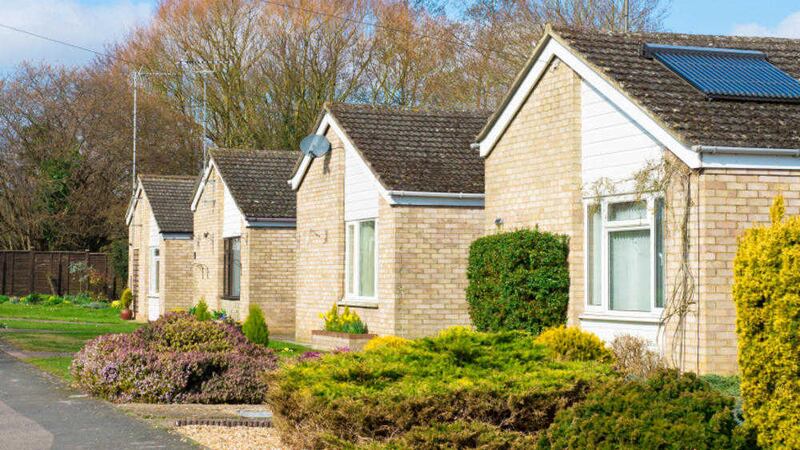NOW that David Cameron is on his European crusade, will his Tory government’s planned house-building revolution run out of steam?
The prime minster used last year’s Tory conference to announce a “national crusade to get homes built.”
It was long overdue from whichever government was in power. Cameron stated: “When a generation of hardworking men and women in their 20s and 30s are waking up each morning in their childhood bedrooms – that should be a wake-up call for us.”
Youngsters are waiting longer and longer to get on the property ladder – however hard and quickly they save for a deposit, the price of a home keeps increasing, often tantalisingly out of reach.
The price keeps rising for a variety of reasons, basically down to supply and demand. Older owners are not downsizing, often because of the cost and lack of suitable accommodation, and remain living in properties much bigger than they need with empty bedrooms.
One of the last problems that won’t be solved in this government’s lifetime, or the next, is the lack of new housing being built. The estimate is about 250,000 new homes a year just to cope with the UK’s population growth.
Last year’s total was the best in recent years, but still only 156,140 – almost 40% short of the minimum. The six years from 2010-2015 need one million and a half new homes; the actual number registered was 775,827, just over half.
House buying has certainly become a two-step process. In recent years, once your Independent Financial Adviser (IFA) had guided you through the mortgage maze, especially since the introduction of the Mortgage Market Review (MMR) nearly two years ago, you were almost there.
Now there is no relaxing until you are over the finishing line; and contracts have been exchanges and purchase completed. Lose one house, for whatever reason, and finding another in the same price range with the same facilities can be challenging.
Cameron’s words are all very well – but drastic action in the housing market is needed if it’s going to improve, rather than get worse.
Will George Osborne’s budget provide some answers? In his last autumn statement, the chancellor wanted an extra 400,000 homes to be built by 2020.
Much of the pre-budget (March 16) hype has revolved around pensions and tax relief. Many experts are sure many older owners will downsize and free up much-needed stock – but only if it doesn’t leave them out of pocket or, more preferably, better off for having made such a gesture.
Of course, there will be some who were going to downsize anyway and will benefit, but that is hardly the point. Far too often, the treasury worries about allowing a few to cash in at the expense of the bigger picture.
A recent survey showed that the number of the properties owned by those under 35 had dropped by 280,000 since 2010, from 1,623,057 to 1,342,814. The percentage of households owned in the UK has fallen from 70.9 in 2003 to around 63.3 per cent.
One of the problems, even if pensioners decide it’s time to sell the family home, is that their favoured retirement home is now an endangered species. It had been predicted the end of this Tory parliament could also mark the end of the bungalow!
It’s a favoured home of those past their prime, not least because of the absence of stairs. The style is generally simple; a two-three bedroomed property sitting cosily in the middle of a nice plot.
There’s the problem. In this age of soaring land prices, too little house for too much space. In 1986, a total of 27,200 were built – in 2009 that had dropped to 300. In 1996, 7 per cent of new builds were bungalows – in 2013, it was 2 per cent.
Often, those with bungalows can find themselves frustrated by local planners when they decide it would be easier to move and extend upstairs rather than move. All part of a property vicious circle that nobody, especially politicians, appears to have the vision or inclination to break.
The bungalow is a long-time British favourite, especially for those living in more exposed places along the coast and in the wilds, where the wind and rain can do real damage.
The term bungalow comes from the Indian “bangala” – meaning house in the Bengal style. The bungalow has been popular in this country for well over a century and has often reflected a variety of social events, trends and changes; many feel it would be premature to write its obituary just yet!
:: Darren McKeever (dmckeever@ wwfp.net) is Northern Ireland adviser of Worldwide Financial Planning, which is authorised and regulated by the Financial Services Authority. For a free, no obligation initial chat about your individual finances, call 028 68632692, e-mail info@wwfp.net or click on www. wwfp.net. Follow us on Twitter: @WorldwideFP.








